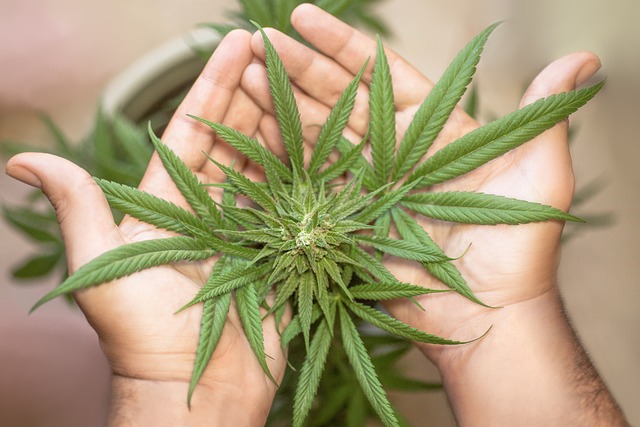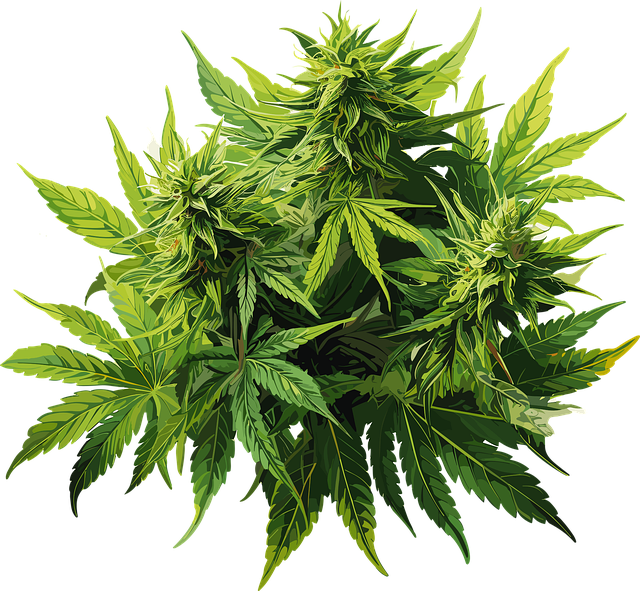THCA (tetrahydrocannabinolic acid), a non-psychoactive compound found in the cannabis plant, is legally recognized in Alabama under the state's 2016 Canni-Patient Protection Act. This act allows for the use of CBD for certain medical conditions. THCA products, which include flowers, oils, edibles, and topicals, must comply with state regulations and are derived from industrial hemp. These products are known for their potential health benefits such as anti-inflammatory and neuroprotective effects, and they do not produce the psychoactive high associated with THC. In Alabama, THCA is a legal option for those looking to explore cannabis wellness alternatives, and individuals interested in using THCA should seek advice from healthcare professionals to ensure safe and effective use.
Discover the transformative potential of THCA flower, a non-psychoactive cannabinoid gaining attention for its therapeutic properties. This article delves into the burgeoning landscape of THCA’s health benefits and legal considerations, particularly in Alabama. From understanding how raw cannabis can support wellness to navigating its regulatory status, “Through the Looking Glass: Unveiling the Therapeutic Properties of THCA Flower and Its Legal Standing in Alabama” offers a comprehensive exploration of this promising compound. Join us as we dissect the science behind THCA and provide insights into cultivating wellness with its legal advantages in the Heart of Dixie.
- Unveiling the Therapeutic Properties of THCA Flower: Is It Legal in Alabama?
- Exploring the Health Benefits and Uses of Raw Cannabis: The Science Behind THCA
- Cultivating Wellness with THCA: A Comprehensive Guide to Its Legal Status and Advantages in Alabama
Unveiling the Therapeutic Properties of THCA Flower: Is It Legal in Alabama?

Unveiling the Therapeutic Properties of THCA Flower: Is It Legal in Alabama?
The therapeutic properties of THCA flower, a non-psychoactive cannabinoid found in the Cannabis sativa plant, have garnered significant attention within the realm of natural medicine. Tetrahydrocannabinolic acid (THCA) is the precursor to THC, the primary psychoactive component of cannabis. Unlike its psychoactive counterpart, THCA is noted for its potential health benefits without the intoxicating effects. Research suggests that THCA may exhibit anti-inflammatory, anti-nausea, anti-anxiety, and neuroprotective qualities, making it a subject of interest for those seeking alternative therapies.
In Alabama, the legal status of THCA flower is underpinned by the Alabama Compassionate Care Act, which allows for the treatment of certain conditions with cannabis products that contain less than 0.3% THC. While this act primarily focuses on CBD oil, it opens a door for discussions regarding other cannabinoids, including THCA. It’s crucial for consumers and healthcare providers in Alabama to stay informed about the evolving legal landscape as interpretations of state laws can vary. As such, while there is potential therapeutic benefit to be explored with THCA, adherence to state and federal regulations remains paramount when considering its use. Navigating the legalities surrounding THCA flower requires a clear understanding of both state and federal laws to ensure compliance and safety.
Exploring the Health Benefits and Uses of Raw Cannabis: The Science Behind THCA

Raw cannabis, specifically in its flower form, contains a multitude of therapeutic compounds, including tetrahydrocannabinolic acid A (THCA), which has garnered attention for its potential health benefits. THCA is the non-psychoactive precursor to delta-9-tetrahydrocannabinol (THC), the primary psychoactive component of cannabis. Research suggests that THCA may offer a range of wellness benefits without the psychotropic effects associated with THC. In Alabama, where the legal status of cannabis is evolving, THCA found in raw cannabis flowers is distinctly legal due to its non-intoxicating nature. This has led to a growing interest in the use of raw cannabis for health and wellness purposes, as it can be consumed in various forms such as juices, smoothies, or infused into edibles without the need for heating, which converts THCA into THC. Studies indicate that THCA may have anti-inflammatory, neuroprotective, and analgesic properties, making it a subject of interest in the realms of pain management, neurodegenerative disease research, and inflammatory condition treatments. The science behind THCA is complex, involving its interaction with the body’s endocannabinoid system, which plays a crucial role in regulating a range of physiological processes, including appetite, immune system responses, and pain sensation. As such, understanding the potential benefits of THCA within the legal framework established by Alabama’s laws is an important aspect for those exploring alternative health solutions.
Cultivating Wellness with THCA: A Comprehensive Guide to Its Legal Status and Advantages in Alabama

Exploring the benefits of THCA, or tetrahydrocannabinolic acid, the precursor to THC found in cannabis and hemp plants, can be a transformative journey for those interested in natural wellness solutions. While the legal landscape for cannabis derivatives has been complex and evolving, understanding the status of THCA in Alabama is crucial for consumers and enthusiasts alike. As of the latest legal updates, THCA products are permitted under Alabama’s 2016 Canni-Patient Protection Act, which allows for the use of cannabidiol (CBD) with a prescription for certain medical conditions. However, it’s important to note that any derivative of marijuana, including THCA, must comply with state regulations and be sourced from industrial hemp rather than psychoactive marijuana.
In Alabama, THCA products are available in various forms, including flowers, oils, edibles, and topicals, catering to a diverse range of preferences and needs. These products offer potential wellness benefits without the psychoactive effects typically associated with THC. Advocates for THCA claim it possesses anti-inflammatory properties, neuroprotective qualities, and may be beneficial in managing pain and anxiety. The non-psychoactive nature of THCA makes it an attractive option for individuals seeking relief from ailments without the ‘high’ often linked to cannabis use. As with any wellness supplement, it’s advisable to consult healthcare professionals before incorporating THCA into one’s health regimen, especially given the evolving legal framework surrounding these products. Understanding the nuances of THCA’s legal status in Alabama is a critical step for anyone looking to explore its potential benefits within the confines of the law.
In conclusion, the exploration of THCA flower’s therapeutic properties and its potential health benefits presents a compelling case for its consideration within wellness routines. As discussed, THCA, the non-psychoactive precursor to THC found in cannabis plants, holds promise for various wellness applications. The legal status of THCA flower in Alabama is an important factor for consumers to navigate, as it varies from federal to state regulations. For those interested in the potential wellness advantages of THCA, understanding its legal standing is crucial. This article has delved into the science behind THCA and provided a comprehensive guide on its current legal status in Alabama, highlighting the importance of staying informed on evolving legislation. As research continues to unfold the benefits of THCA, it is clear that this cannabinoid may offer valuable wellness support, subject to legal access.
